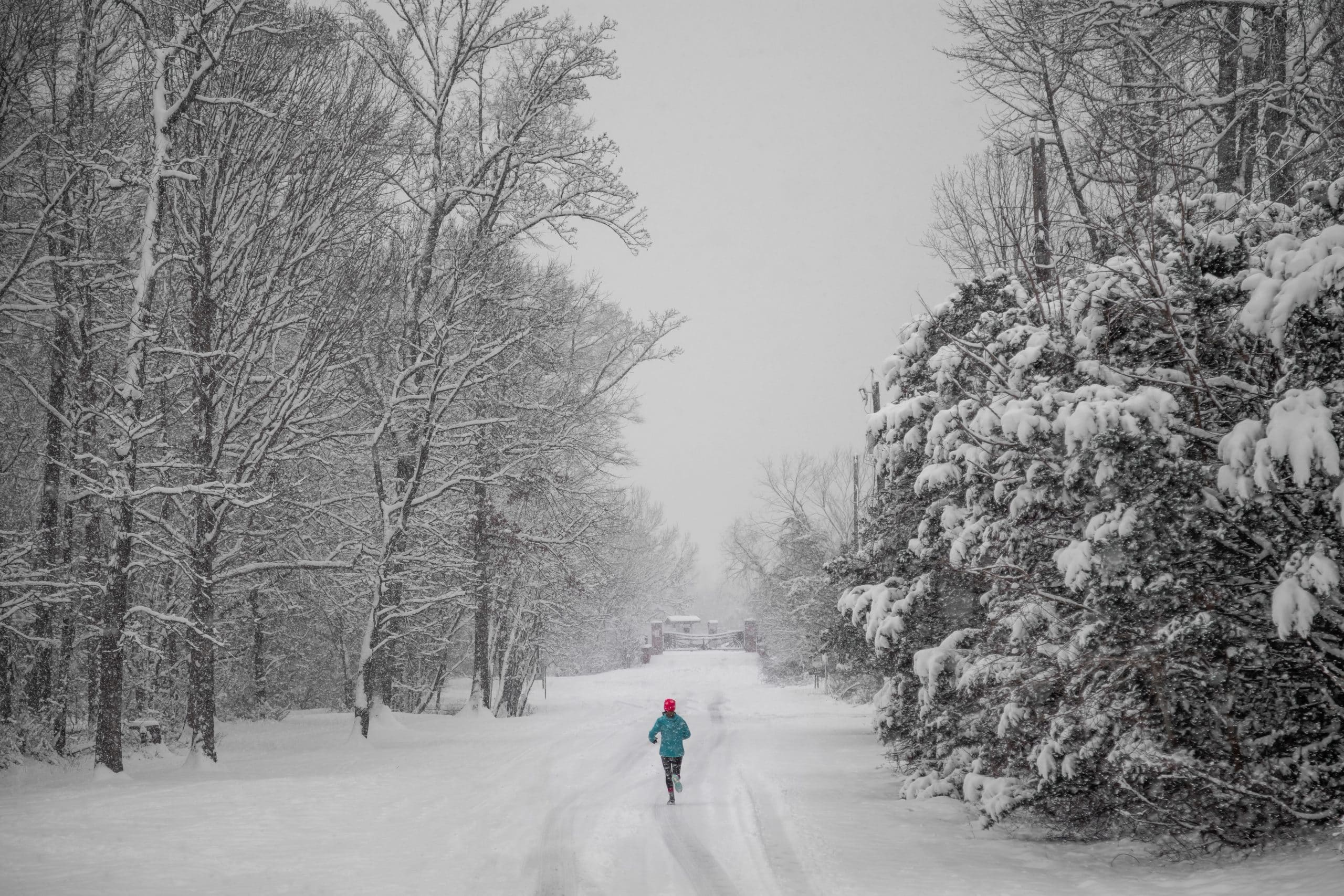
 If you’re living in Louisville, KY, or other area where it can get really cold, you may wonder whether it’s healthy to run in the cold. In most cases, the answer is yes, depending on how you dress and how extreme the cold weather is. However, cold weather may make your heart work harder. It causes your blood vessels to constrict so there’s more blood going to vital organs like your brain. It causes an increased risk for blood clots that can lead to heart attack or stroke.
If you’re living in Louisville, KY, or other area where it can get really cold, you may wonder whether it’s healthy to run in the cold. In most cases, the answer is yes, depending on how you dress and how extreme the cold weather is. However, cold weather may make your heart work harder. It causes your blood vessels to constrict so there’s more blood going to vital organs like your brain. It causes an increased risk for blood clots that can lead to heart attack or stroke.
Warm up sufficiently before you go outside.
You need to warm your muscles before they’re assaulted by both exercise and cold temperatures. Get your blood flowing first by doing dynamic stretches or other warm up exercises. If you don’t, you may experience muscle spasms or cramping. They need to be nourished with oxygen and nutrient laden blood. While warm-up sessions are important all year, they’re especially important in cold weather. Even if you do nothing more than jogging in place or doing high knee and butt kicks, warming up inside before you face the weather is important.
Make your run even safer by dressing appropriately.
Layering up when you dress for any type of workout is important. It allows you to adjust your clothing to prevent overheating or getting too cold. Your clothing closet to your body should wick away moisture, with a layer of insulating clothing and a more protective outer layer. A lot of your body heat escapes through your head, so wearing a hat is a must. While you want to dress warm, remember, as you run, it will feel 10 to 20 degrees warmer than it really is.
Consider a cold weather mask.
In today’s environment, wearing a mask while running isn’t unusual and it could be a great benefit when running in the cold. It helps prevent loss of heat via the face and keeps you insulated and free from windburn. Not only does it prevent skin damage from the cold and windburn, which can mean frostbite on your most exposed areas, the face, particularly the nose, it prevents your skin from drying and can aid in preventing chapped lips. When you breathe in cold dry air, it takes energy to warm the air and prevent it from drying your lungs. Both of those can cause stress to the body. The mask keeps the mucous membranes moist, since it captures the warmer air that’s moist and warms the cold air, while adding moisture.
- Running at night, especially if you’re alone can be dangerous. Try to have a running partner, wear reflectors if you run at night and light colored clothing.
- If you run when it’s cold, use common sense. Unless you’re in exceptional athletic condition, running outside when it’s below zero is asking for problems. If you have a health condition, always talk to your healthcare professional first before you run in the cold.
- Don’t run in the cold if you’re not feeling up to par. You’re better off doing some inside exercises than risking a run in with the elements.
- If you’ve never run in the cold and are starting a fitness program, run in the warmest part of the day. It’s normally early in the afternoon. Gradually work up to increasing your time and work your way to running in colder temperatures. Don’t start on the coldest day of the year.
For more information, contact us today at Body Sculptors Personal Training
